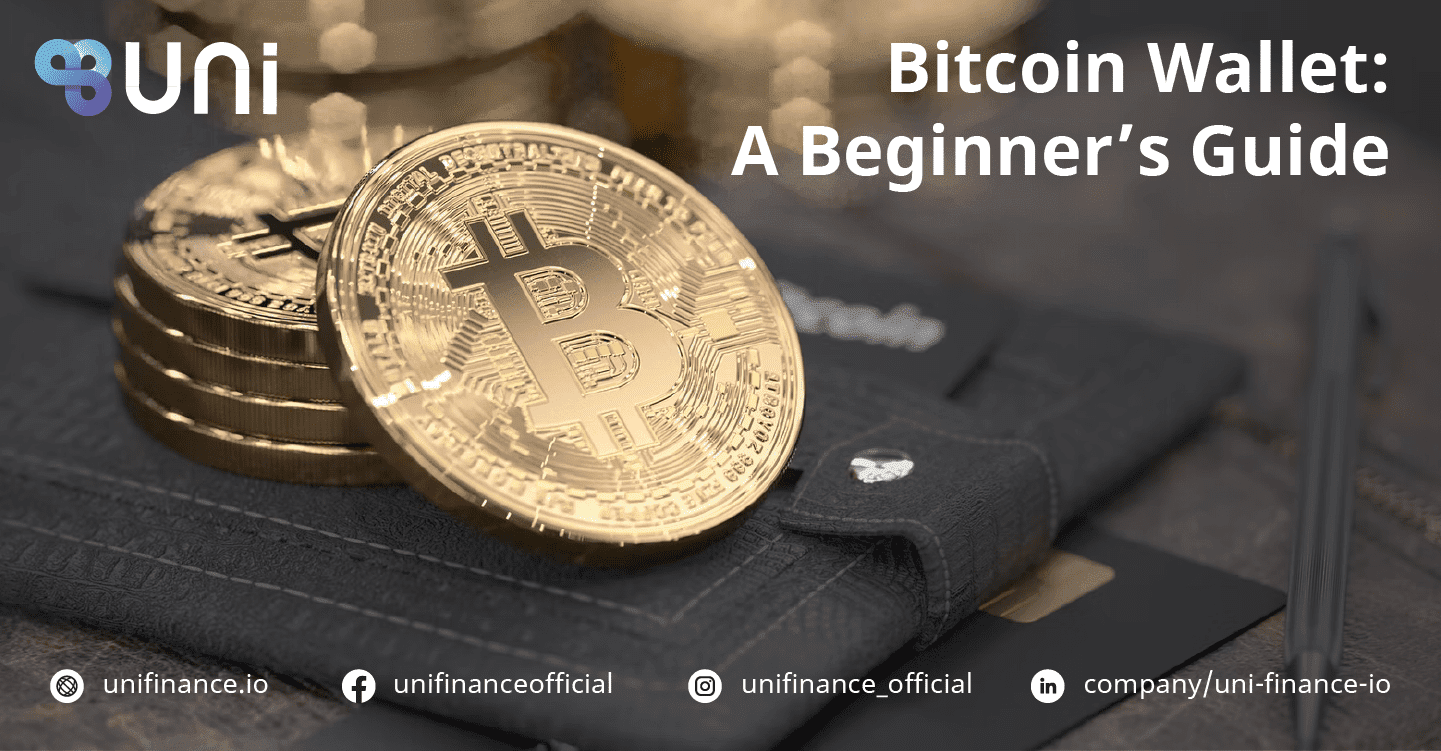Bitcoin Wallet: A Beginner's Guide
Now that you are into Bitcoins, do you know how to properly store these digital coins? After you own BTC, the next step is to ensure that it is stored in a safe place.
A Bitcoin wallet is a device or program that can interact with the Bitcoin blockchain. Although it is common to think of these wallets are just for storing Bitcoins, a Bitcoin wallet represents cryptographic control of a blockchain address. A wallet app automatically uses a private key to sign the outgoing transactions and also generates wallet addresses for you using that key.
A Bitcoin wallet is a digital wallet that makes it possible to send and receive Bitcoin. The device containing your Bitcoin wallet stores the private key, not the coins themselves. The digital coins are stored on the Bitcoin blockchain and require the private key to authorize the transfer of coins to another person’s wallet. Some Bitcoin wallets can be used for multiple cryptocurrencies.
Types of Bitcoin Wallets
1 ) Mobile Wallets
Mobile wallets take advantage of simplified payment verification technology and only operate with small subsets of the blockchain that rely on trusted nodes in the Bitcoin network to ensure that they have the correct information.
2 ) Web Wallets or Exchange Wallets
Similar to mobile wallets, e-wallets enable users to access funds on the go using their devices. Web or exchange wallets store private keys on a server that are constantly online and controlled by a third party.
3 ) Desktop Wallets
Desktop wallets are downloaded and installed on computers, storing the private keys on a hard drive or solid state drives (SSD). This type of wallet is more secure than online and mobile wallets, for the reason that a desktop wallet doesn’t rely on third parties for their data and is more difficult to access and steal.
4 ) Hardware Wallets
A hardware wallet stores the private keys in a secure physical device. It is also said that this is the most secure way of storing Bitcoins. Aside from they don’t need to be imported to any software, hardware wallets are immune to computer viruses.
5) Paper Wallets
A paper wallet is a tangible document that contains a public address for receiving Bitcoin and a private key that allows users to spend or transfer Bitcoin. Paper wallets are often printed in the form of QR-codes that can be quickly scanned and add the keys to either a software wallet or a wallet app to make a transaction.
Start your cryptocurrency journey now with Uni Finance.
Your journey to a 𝐔𝐍𝐈verse of 𝐅𝐢𝐧𝐚𝐧𝐜𝐞 begins here.
Sign up for a FREE account now!Popular Reads
- 10 Games to Earn Cryptocurrency
- What Makes Bitcoin Pump or Dump?
- What You Need to Know About The Bitcoin and Crypto Market Cycles
- Crypto Slangs You Need To Know
- 5 Mistakes to Avoid in Crypto
- What are Meme Coins?
- How to Make Your Own NFT
- 5 Fun Facts About Ethereum
- The Future of Cryptocurrencies
- NFT: The History and Its Future
- Who Is Satoshi Nakamoto?
- Bitcoin Wallet: A Beginner's Guide
- Advantages of Trading Cryptocurrency with Uni Finance
- How to Fund Your Uni Finance Account
- How to Open an Account with Uni Finance
- Why choose Uni Finance
- Trading VS Hodling: What should you do?
- Fun Facts About Bitcoin
- 5 Reasons to Invest in Cryptocurrency
- Types of Cryptocurrency Traders
- How to Prevent Scams in the Crypto World
- 10 Common Cryptocurrency Terms That You Need to Know
- Pros and Cons of Investing in Cryptocurrency
- UNI Finance Is Set To Make Its Mark Into The Cryptocurrency World




